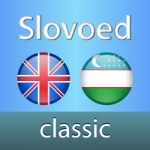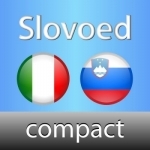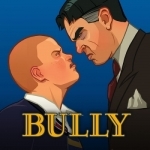
Snap2PDF - Scan Documents & Share Searchable PDF
Business and Productivity
App
* The Best Document Management App * • Snap2PDF secured a spot among the Top 10 apps in the...

English - Uzbek Slovoed Classic Talking Dictionary
Reference and Education
App
***TWO DAYS GRACE PERIOD! Use the dictionary FOR FREE*** Inglizcha-O’zbekcha-Inglizcha Slovoed...
Ronyell (38 KP) rated Kolmnurk (1982) in Movies
Aug 4, 2020
My Interpretation:
So, apparently Viktor and Julia were a happy couple when they were first married. But over the years, Viktor started to ignore Julia and Julia is trying desperately to get her husband's attention again. I'm assuming that the food that Julia cooks represents her sexual desires for Viktor, as the food seem to weirdly take on any shape or form of her body. Also, there were moments where realistic photo shop images of real life people would appear on both Julia and Viktor's faces, representing their desires to look beautiful towards each other. Then when the mouse sized man, Eduard comes between Julia and Viktor, Julia feeding Eduard the food that she made represents her having an affair with Eduard, due to wanting to feel wanted by somebody, since Viktor won't give her the attention that she wants. So, when Viktor sees Julia feeding Eduard the food that she originally made for him, this could be viewed as Viktor finally noticing Julia having an affair with Eduard and he decides to leave her because of that. Whether or not Julia and Viktor get back together with each other in the end is something you have to see for yourself!
I just loved the way that Priit Parn created these bizarre characters as it was interesting yet a bit disturbing seeing real life photos of people's faces suddenly appear on either Viktor, Julia or Eduard's faces as those real life photos look so out of place on these hand drawn characters. I also liked the interesting way that Priit Parn tackled the issue of martial problems by using food as a metaphor for the couple's deteriorating marriage.
The only problem that I had with this short was that it was a bit confusing to understand at times. Like, I wasn't really sure how the food plays a role in the couple's relationship with each other and I was wondering about where Eduard exactly came from. I mean, this is really good stuff for a surreal short, but it can be a bit hard to swallow at times.
Overall, "The Triangle" is a truly intriguing animated short about martial problems that anyone who is in a relationship will enjoy watching (just to see how weird this short was). Also, if you are a huge fan of foreign shorts, then this is definitely one short that you should check out!

Italian <-> Slovenian Slovoed Compact talking dictionary
Reference and Education
App
#1 DICTIONARY TECHNOLOGY IN THE WORLD 13 000 entries and 10 000 Italian audio pronunciations...

Bully: Anniversary Edition
Games
App
***PLEASE NOTE: This game is officially supported on the following devices only: iPhone 5, 5s, 5c,...

Paris Travel Guide (with Offline Maps) - mTrip
Travel and Lifestyle
App
9/10 in WIRED’s App Guide - Selected as an Honoree in the Webby Awards - Featured in CNN’s 50...

Beijing Travel Guide (with Offline Maps) - mTrip
Travel and Lifestyle
App
9/10 in WIRED’s App Guide - Selected as an Honoree in the Webby Awards - Featured in CNN’s 50...

New York Travel Guide (Offline Maps) NYC - mTrip
Travel and Lifestyle
App
9/10 in WIRED’s App Guide - Selected as an Honoree in the Webby Awards - Featured in CNN’s 50...

San Francisco Travel Guide (Offline Maps) - mTrip
Travel and Lifestyle
App
9/10 in WIRED’s App Guide - Selected as an Honoree in the Webby Awards - Featured in CNN’s 50...

Budapest Travel Guide (with Offline Maps) - mTrip
Travel and Lifestyle
App
9/10 in WIRED’s App Guide - Selected as an Honoree in the Webby Awards - Featured in CNN’s 50...
